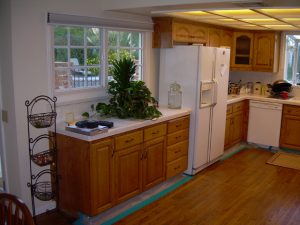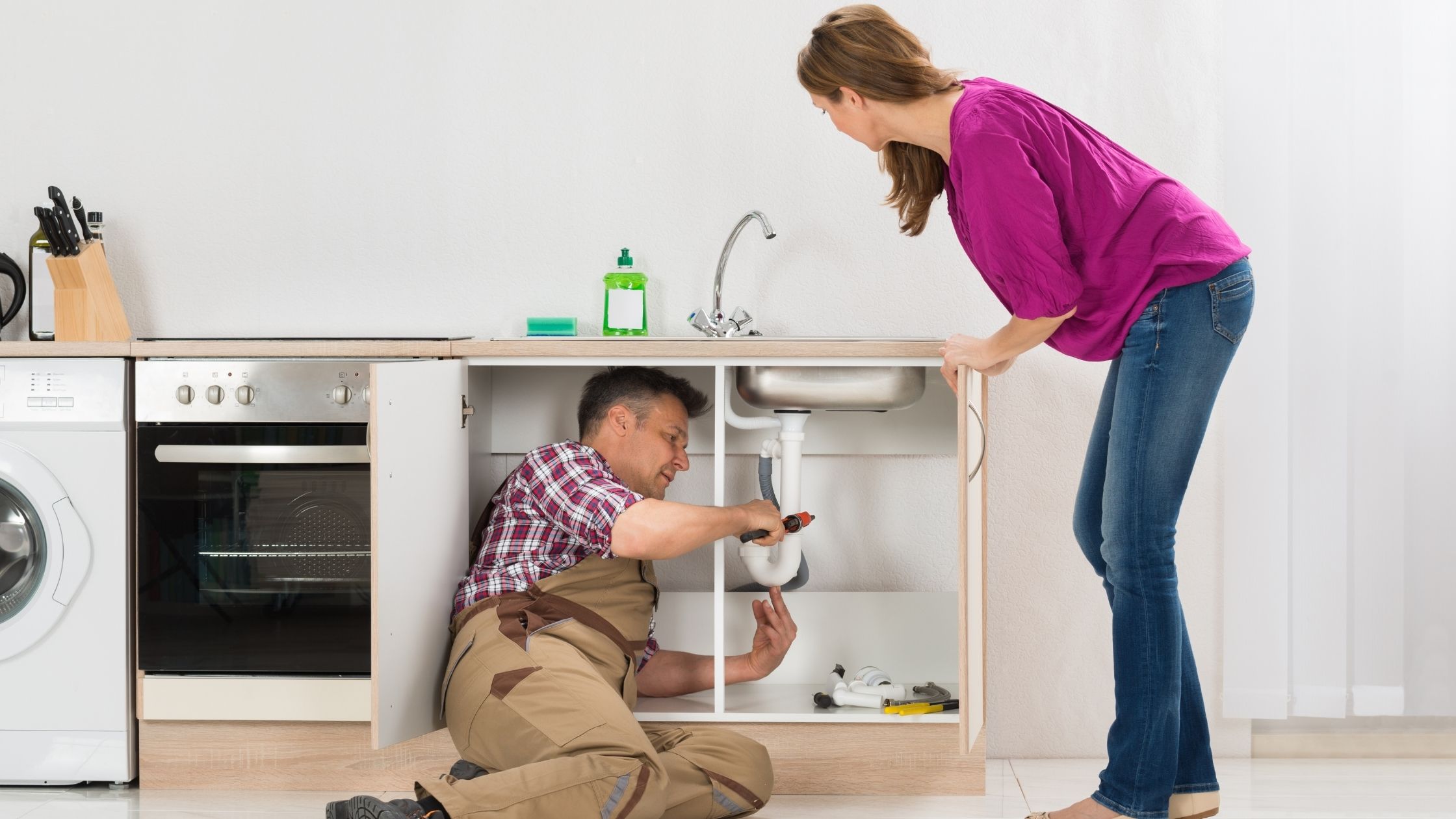Call
This great article down below involving How To Prevent Water Damage To Your Kitchen is quite stimulating. Don't bypass it.

The kitchen is the area where a lot of water activity takes place. You can hardly do anything without making use of water in the kitchen area, from cooking, cleansing, and doing the recipes.
Thus, examining your kitchen area every now and then is a need. This is because it has a greater possibility of obtaining water damage because of the devices you utilize there.
When damaged, these home appliances that regulate water might make your cooking area messy and also affect the framework of your building over time.
So, allow's have a look at some sources of the water damage in the kitchen area and also what you should watch out for.
Some Reasons For Water Problems in the Kitchen
These are a few root causes of water damage in the kitchen.
Faulty Drain Piping
Drain Pipes are essential parts of our houses, particularly in our bathroom and kitchens. Nonetheless, they get malfunctioning by obtaining blocked, broken, as well as ruptured. Or even worse, they can be mistakenly or loosely connected; whichever the situation might be, it can be an extreme problem.
Defective drainpipe pipelines can create water damage and, consequently, trigger mold and mildew development and also disfigure the look of your wall. It can likewise make the afflicted location look unpleasant.
Therefore, it is recommended always to inspect to make sure that all the pipelines remain in good condition and also obtain a sound plumbing system to maintain and repair any type of problems.
Faulty Kitchen Sink
The kitchen sink is an important and most used part of the kitchen. Hence it is prone to water damage; damages such as blocked pipes, dripping pipelines, and also damaged taps.
These problems can be aggravating, specifically when one is hectic in the kitchen area. Nevertheless, it doesn't just take place without offering an indicator or a hint. So here are some signs to know when your sink is not alright
So, these are the significant damages that can take place to your kitchen area sink. Nevertheless, one way to quit this damage is by making certain that food bits do not get into the pipelines. You are likewise checking the faucets as well as pipes as well as ensuring that it is appropriately repaired and also in good condition.
Leaking Dish washer
Dishwashers make life in the kitchen area easier. It is an optional kitchen device and, when offered, can be a resource of water damage. Additionally, like various other machines, it will certainly create faults gradually, even with maintenance.
Among the mistakes is leaking via the door or beneath the dishwashing machine. These mistakes develop because of age, splits, incorrect usage, loosened web links to pipes, etc.
Mistakes due to age come from constant use. As a result, the door leaks as a result of opening up and closing.
Likewise, mistakes from the incorrect usage may cause water damage by introducing cracks to it. It is suggested to follow the manual guide of the dishwashing machine to avoid this certain damages.
The leakages under the dishwasher can come from cracks in the gasket, hose pipe, as well as incorrect or loosened link to pipes or drains pipes.
This sort of leak typically goes undetected and also can be there for a long period of time. However, due to the time framework, it can harm the flooring and cause mold and mildew development.
A lot more so, the longer the water remains, you will certainly observe the bending of the flooring where the dish washer is. When examining if your dish washer leakages, this is an excellent indicator to look out for. Detecting and also repairing this promptly protects against significant water damage to your floor covering.
Profits
Keeping an eye out for problems in your kitchen area can be charging however required. It makes your work there simpler and safer.
However, the reasons detailed above are just a couple of aspects to think about, particularly if your kitchen has a lot of devices.
Obtain an expert plumbing service to come about as well as check for any kind of damages as well as get them dealt with.
It makes your kitchen location wet and also untidy, especially when dripping from the pipelines. As well as if it is dripping from the tap, it leads to water waste.
It is an optional kitchen home appliance and, when readily available, can be a source of water damage. More so, the longer the water remains, you will see the bending of the floor where the dish washer is. Finding and repairing this on time avoids significant water damage to your flooring.
WAYS TO PROTECT YOUR KITCHEN FROM WATER DAMAGE
The kitchen is one of the most significant rooms in your house, as it is a multipurpose room wherein you can do your cooking and cleaning. Nowadays, homeowners tend to ignore the problems under their sink or appliances because of their busy schedules. However, most household floods occur due to plumbing and appliance failure. One of the most common scenarios that cause water damage to your kitchen is when the dishwasher malfunctions and floods gallons of water.
Water damage in your kitchen can cause several problems, including cosmetic damage, mold growth, and even an unpleasant smell. Often, if you fail to neglect the problem, there are always consequences. This article will help you protect your kitchen from water damage.
Common Causes of Water damage in your kitchen
Pipe problems are the most common source of water leaks under your sink. If homeowners ignore this issue, it will burst and flood the kitchen. Dishwasher leaks can be a source of water damage in your kitchen. An old, broken, and defective dishwasher can cause leaks, damage to your floor, and even mold growth. Refrigerator leaks can cause water damage in your kitchen, as sometimes melted ice from defrosting can cause leaks. Furthermore, if your refrigerator has internal problems, it is very likely to cause water damage. Back-splash and sink caulking can cause discoloration and water damage to your countertop tiles. Ways to Protect Your Kitchen From Water Damage
Regular maintenance
The most important thing you can do to protect your kitchen from water damage is to inspect the sinks, drains, and pipes, as well as the kitchen appliances, regularly. As with the sink, check for missing or deteriorated caulk. Remove the old caulk and clean the area thoroughly and re-seal it with fresh silicone. Furthermore, sweep the drain regularly, empty the filter and dispose of the debris in the garbage, and inspect the supply lines and valve for cracks.
Check your appliances
Check the user’s manual for instruction and proper use of every water-related appliance installed in your kitchen. For the dishwasher, check this procedure to prevent the dishwasher from flooding your kitchen. Check the appliances that need water, such as the coffee maker, ice maker, and water cooler, as they can become the cause of water damage in your kitchen. You may call a professional to check and repair damaged appliances and professional restoration for water damage clean-up.
Garbage clean-up
Fats, oil, and grease are common in the kitchen. Pouring them down the drain can cause clogs and sewage backup, which may result in significant kitchen water damage. If your kitchen sink is clogged, use a solution of hot water, baking soda, and vinegar to unclog the fats and oils in the pipes. Also, make sure to throw out the debris in the trash and clean the sink properly using paper towels for greases and oil and soap or bleach solution for the sink itself.
Shut off your water line
Make sure to shut off your main water line, especially if you're away and having some flood issue. As mentioned, dishwasher leaks are one of the most common culprits of water damage in the kitchen. So, make sure to only use the dishwasher if someone is at home and available to attend in case a problem arises.
Furthermore, it is also important that every member of your household knows where the shut-off valves are located. So in case of an emergency, they can mitigate the damage by turning off the water source.
Install leak detectors
One of the best ways to catch water damage before it could even cause serious damage to your home or business is by installing a water or leak detector. A leak detector monitors the flow of water through a pipeline, can detect moisture in the air for molds, and tracks the water temperature. Also, it can shut off your water line in case of an emergency. Install leak detectors under the kitchen sink, near the dishwasher and refrigerator.
https://superiorrestore.com/7-ways-to-protect-your-kitchen-from-water-damage/

I ran across that blog post about Water Damage in Kitchen while doing a lookup on the search engines. I beg you set aside a second to promote this page if you appreciated it. I treasure reading our article about Most Common Causes of Residential Water Damage .
Browse Website